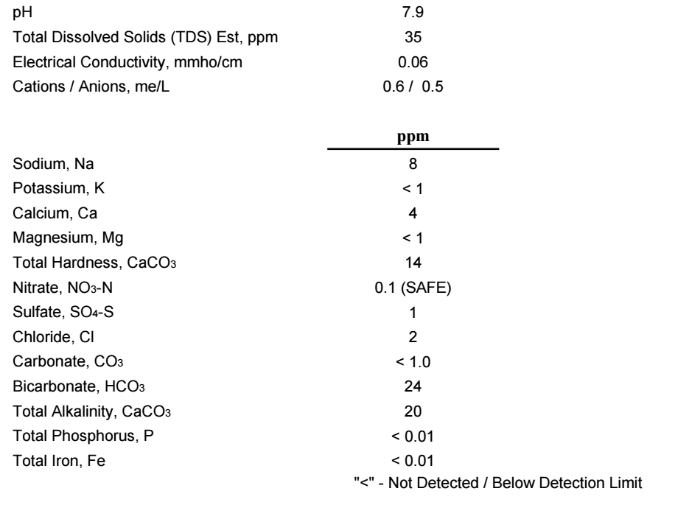StroudCreek
Well-Known Member
- Joined
- Oct 15, 2012
- Messages
- 107
- Reaction score
- 24
What do you guys think?





do you have a filter on your well?What do you guys think?
For a heavy stout with lots of black stuff, perhaps. For most stouts and witbier, no.For brewing a Stout or a WitBier you want to increase the alkalinity a some though.
Just to clarify some of the "great water" comments...
People are saying that because you basically have a blank slate. It's low in everything across the board. Is that perfect for every style (or any style) as is? Generally no. The "great" part is that you can get to that perfect profile really easily by adding minerals or acid to your water. It's hard/expensive to remove minerals from your local water, but it's really, really easy and cheap to add minerals.
For a heavy stout with lots of black stuff, perhaps. For most stouts and witbier, no.

What do you guys think?
Whoo, got mine this morning. This water source is Washington's Spada Reservoir via the city of Everett. It's very similar to Seattle city water.

Why do you guys order a $42 kit?
Just mail the sample and order the W-5A Brewers Test for $27.25.
You can do even better than that by ordering the W-6 Household Mineral Test for $21, instead. It omits measuring iron and phosphorus levels, you may not need tested. But some water do, like private well water, etc.
When I looked at the web site I didn't really see any guidance about sending in a sample without the kit. I saw forum posts about it, but if there was a "hey, just mail us a bottle" note on their site it was not obvious.
I just took another look and the process for sending in your own sample is not listed under the Home Brewers section. You have to dig around in Sample Submittal Forms.
Because a $200 RO water system would be the most expensive single item that most home brewers buy. (Plus, the replacement filters are expensive too. )
Wow, I wish I had that water; I'd have no need for my RO setup at all.
Enter your email address to join: